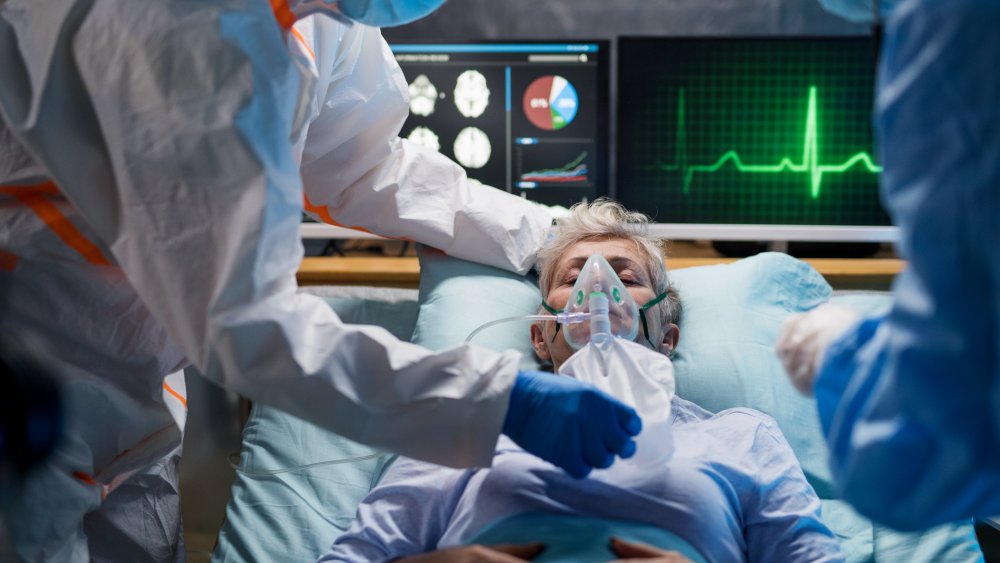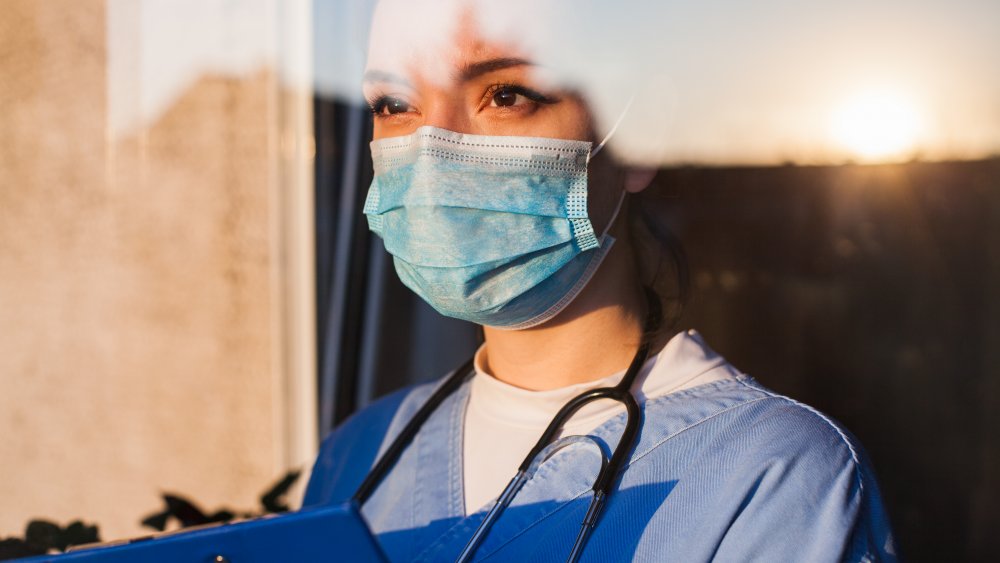What You Need To Know About COVID-19 Reinfection
How well you fare from a coronavirus infection might seem a little like Russian roulette — on one hand, you have the asymptomatic carriers, who test positive without so much as a sniffle. And on the other, you have the more than 218,000 deaths in the United States alone (per Centers for Disease Control and Prevention). True, there is some predictability in terms of who ends up seriously ill — death rates are higher among people who are older, obese, male, and non-white (per Advisory). But, there also have been plenty of cases of otherwise healthy, young people having serious outcomes — or dying (via The Atlantic).
Once you've gone through coronavirus once, though, and lived to tell the tale, can you at least take comfort in knowing you won't have to go through this again? This has certainly been the stance of President Donald Trump, who recently declared he is "immune" since he recovered from coronavirus, and offered to kiss everyone at a Florida rally (via Forbes). A case study published in The Lancet this week, however, tells a completely different story: a 25-year-old man in Nevada had two separate documented COVID-19 infections... and the second one was much more serious. So now that we know reinfection is not only possible, but potentially worse than the first infection, what does that mean for public health?
There are very few documented COVID-19 reinfection cases — but that doesn't mean they don't exist
A silver lining, in the case of the reinfected Nevada patient, is that it made a headline in an internationally known medical journal because reinfections appear to be so rare. Of the 38 million coronavirus cases reported globally, only five of them are documented reinfections. "That's tiny — it's like a microliter-sized drop in the bucket, compared to the number of cases that have happened all over the world," said Angela Rasmussen, a virologist at Columbia University, told The New York Times.
But a lack of records of infection doesn't mean that there are not many reinfections, another expert interviewed by this newspaper pointed out. Marion Pepper, an immunologist at the University of Washington in Seattle, argued that there could be plenty of people who have been reinfected, but had no symptoms and didn't test — perhaps because people don't think reinfections are likely. "There are a lot of different infections where you can get re-exposed to the virus, and we would probably not know because you don't have symptoms," Pepper said. "And that might be an important part of boosting immunity."
Since reinfection is possible, that means that if you did test positive for coronavirus, you should continue practicing social distancing and mask-wearing to protect others around you from the illness — and avoid getting sick again yourself, Dr. Anthony Fauci, the director of the National Institute of Allergy and Infectious Diseases, told CNN. "So you really have to be careful that you're not completely 'immune,'" he said.


